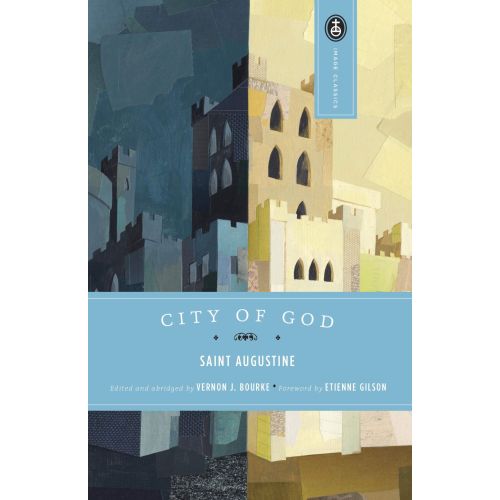We use cookies to make your experience better. To comply with the new e-Privacy directive, we need to ask for your consent to set the cookies. Learn more.
City Of God (Abridged)
$21.00
Item Code
116989
EAN/UPC
9780385029100
Publisher
Random Bantam Doubleday Dell
City Of God (Abridged)
No book except the Bible itself had a greater influence on the Middle Ages than City of God. Since medieval Europe was the cradle of today’s Western civilization, this work by consequence is vital for understanding our world and how it came into being.
Saint Augustine is often regarded as the most influential Christian thinker after Saint Paul, and City of God is his masterpiece, a cast synthesis of religious and secular knowledge. It began as a reply to the charge that Christian other worldliness was causing the decline of the Roman Empire. Augustine produced a wealth of evidence to prove that paganism bore within itself the seeds of its own destruction. Then he proceeded to his larger theme, a cosmic interpretation in terms of the struggle between good and eviL the City of God in conflict with the Earthly City or the City of the Devil. This, the first serious attempt at a philosophy of history, was to have incalculable influence in forming the Western mind on the relations of church and state, and on the Christian’s place in the temporal order.
The original City of God contained twenty-two books and fills three regular-sized volumes. This edition has been skillfully abridged for the intelligent general reader by Vernon J. Bourke, author of Augustine’s Quest for Wisdom, making the heart of this monumental work available to a wide audience.
Format:
Paperback
Pages:
608
Dimensions(Inches):
5.14 x 7.99
AUGUSTINE OF HIPPO (AD 354– 430) is among the most influential cultural figures of all time. His development of Christian theology during the formative fourth and fifth centuries shaped church teaching for future generations. Ascending to influence as a teacher of rhetoric in Hippo, Rome, and Milan, Augustine initially embraced Manichean religion, and later came under the influence of Neoplatonism. In AD 387, however, his life dramatically changed direction with his conversion to Christianity. After conversion, he returned to his native North Africa, where he was ordained a priest and later made a bishop. As leader of the Church in Hippo, he preached widely and wrote voluminous biblical commentaries and apologetic works defending Christian faith against its rivals and detractors, along with more personal and pastoral works, such as Confessions.
Write Your Own Review
